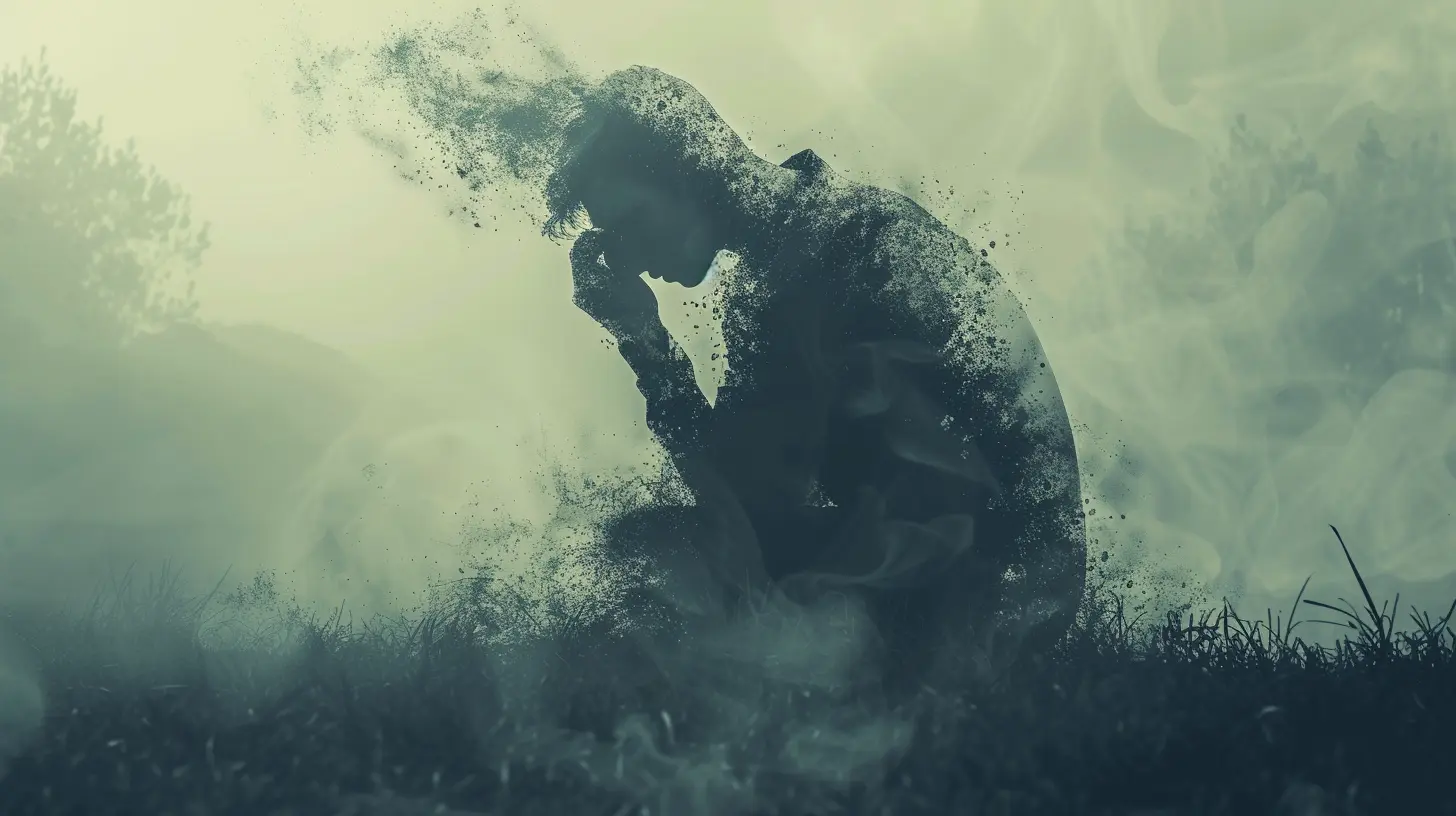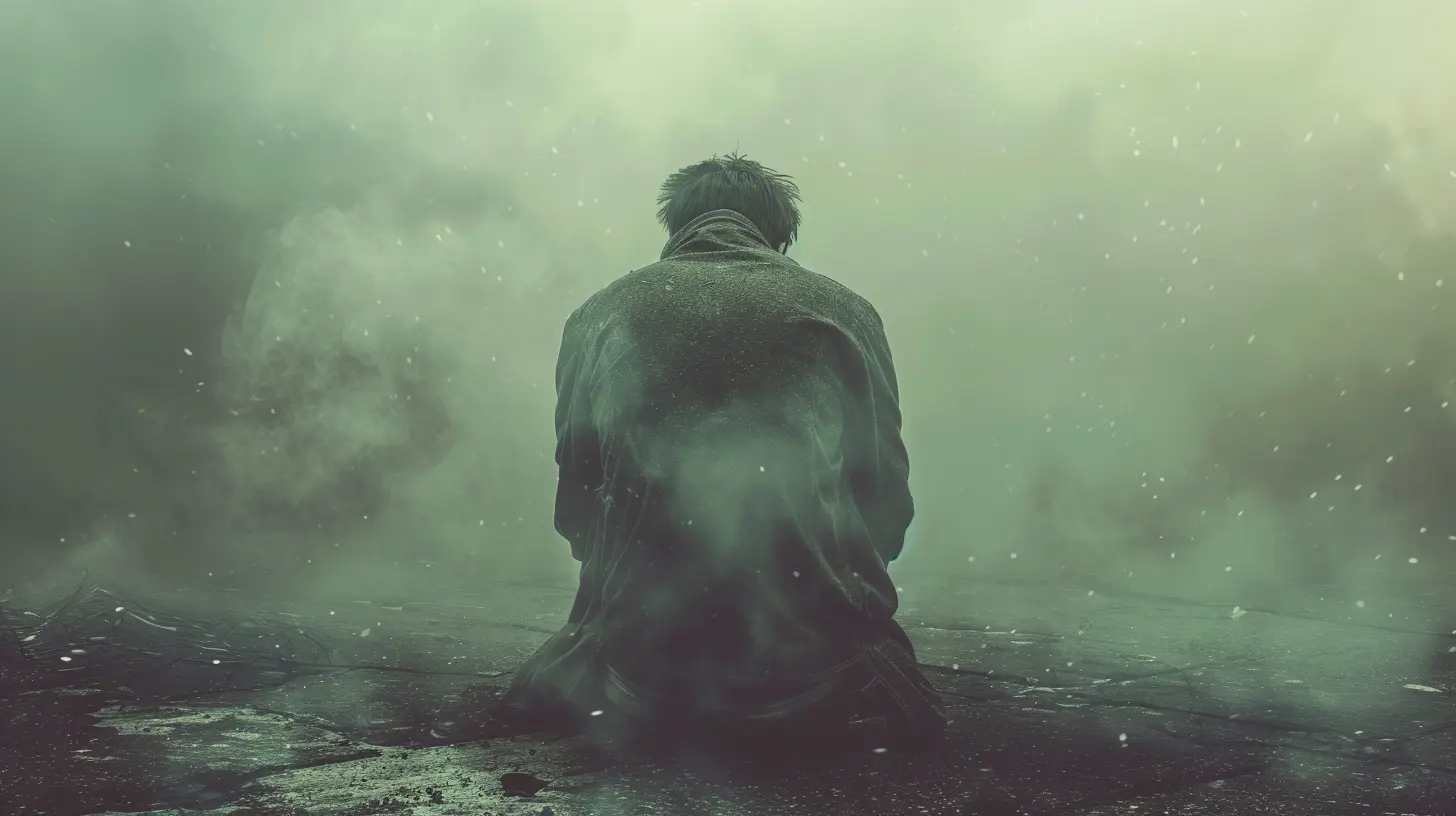The Role of Psychotherapy for Managing Grief and Loss
25 May 2025
Grief is one of the most painful emotions we experience as humans. Whether it's the loss of a loved one, a relationship, a job, or even a cherished dream, grief can feel overwhelming, isolating, and emotionally exhausting. It’s a natural response to loss, but that doesn’t make it any easier to endure.
While time plays a crucial role in healing, psychotherapy can be a powerful tool to help process grief in a healthy way. Talking through emotions, understanding the grieving process, and finding coping strategies can bring comfort and clarity during dark times. But how exactly does psychotherapy help in managing grief and loss? Let's dive in.

Understanding Grief: A Complex Emotional Journey
Grief isn't just about feeling sad. It’s an emotional rollercoaster that can hit unexpectedly and in waves. Some days, you might feel okay, and other days, memories, anniversaries, or even a familiar scent can bring back an intense surge of sadness.Psychologists often describe grief as coming in "stages," but grief is rarely linear. Some of the most recognized stages include:
1. Denial: A sense of numbness or disbelief, as if the loss hasn’t really happened.
2. Anger: Feelings of frustration, resentment, or even questioning, "Why did this happen to me?"
3. Bargaining: Thoughts of "If only I had done something differently," or trying to make sense of the loss.
4. Depression: Deep sadness, loneliness, or a feeling of emptiness.
5. Acceptance: Coming to terms with the loss and finding a way to move forward.
However, not everyone moves through these stages in the same way or in the same order. Some people skip stages, revisit certain emotions, or feel stuck in one phase longer than expected. That’s where psychotherapy can be a guiding light.

How Psychotherapy Helps in Managing Grief and Loss
1. Providing a Safe Space to Express Emotions
Grieving can feel isolating, especially if you think others don’t fully understand what you're going through. Friends and family may mean well, but sometimes, their attempts to comfort can feel dismissive ("Time heals all wounds" or "They’re in a better place").A therapist, however, offers a non-judgmental, safe space where you can express your raw emotions freely. There’s no pressure to "move on" or "stay strong." Instead, therapy allows you to acknowledge your pain without fear of judgment.
2. Understanding That Your Feelings Are Valid
Grief comes with a mix of emotions—guilt, anger, relief, confusion. It’s common to question if what you're feeling is "normal." Therapy helps validate your emotions, reassuring you that whatever you're experiencing is a natural reaction to loss.No grief is "too small" or "too big" to deserve attention. Whether it's mourning a pet, a friend, or a lifelong dream, your feelings are real and deserve care.
3. Helping You Navigate Complicated Grief
For some, grief feels endless, heavy, and paralyzing. If months or years pass and you still struggle to function in daily life, it may be what's called complicated grief or prolonged grief disorder.Psychotherapy can help identify if grief has turned into something more deeply entrenched and guide you through personalized techniques to work through it.
4. Building Healthy Coping Strategies
Let’s be real—grief can make you want to curl up in bed, withdraw from the world, or numb the pain with harmful habits. While these coping mechanisms might bring temporary relief, they often make healing harder in the long run.Therapists can introduce coping strategies such as:
- Journaling to process emotions.
- Mindfulness and meditation to manage overwhelming feelings.
- Cognitive Behavioral Therapy (CBT) to reframe negative thought patterns.
- Developing rituals to honor the loved one or loss in a meaningful way.
These strategies don't erase grief but help manage it in a way that allows for healing and growth.

Different Types of Psychotherapy That Help with Grief
Not all therapy approaches are the same. Depending on your needs, different types of therapy can be beneficial.1. Cognitive Behavioral Therapy (CBT)
CBT is a structured, goal-oriented approach that helps change negative thought patterns. It’s useful if grief is causing recurring negative beliefs like, "I'll never feel happy again" or "I should have done more."Therapists work with you to reframe those thoughts and develop healthier perspectives on the loss.
2. Complicated Grief Treatment (CGT)
CGT is specifically designed for people who feel stuck in grief for an extended period. It combines elements of CBT, exposure therapy, and interpersonal therapy to help individuals adjust to life without their loved one while maintaining a sense of connection.3. Acceptance and Commitment Therapy (ACT)
ACT focuses on accepting difficult emotions rather than fighting them. Instead of trying to “get over” grief, it helps you integrate it into your life in a way that allows you to still find meaning and purpose.4. Psychodynamic Therapy
This approach looks at deep-seated emotional patterns and unresolved past conflicts that may be influencing your grief response. It helps uncover any suppressed emotions or unresolved trauma connected to the loss.
The Role of Group Therapy in Grief Support
While one-on-one therapy is helpful, sometimes hearing from others who are going through similar experiences can bring a deep sense of comfort and connection.Group therapy offers a space where people share their grief stories, listen to others, and realize they aren't alone in their pain. It creates a support system, helping individuals feel understood and less isolated.
When to Seek Psychotherapy for Grief
Grief doesn’t come with a "one-size-fits-all" timeline. However, seeking professional help might be necessary if you:- Struggle to carry out daily tasks months after the loss.
- Feel extreme guilt, self-blame, or hopelessness.
- Experience prolonged numbness or detachment from life.
- Engage in self-destructive behaviors (substance abuse, reckless actions).
- Have thoughts of self-harm or suicide.
If grief is interfering with your ability to function, reaching out to a therapist can be a life-changing step.
Healing Doesn’t Mean Forgetting
One of the common fears people have is that healing from grief means forgetting their loved one or minimizing their loss. That's not the case.Therapy helps you find ways to honor the memory while still moving forward with life. It doesn't mean "letting go" of the person or thing you lost—it means learning to carry their love and lessons with you in a way that allows you to heal.
Grief often reshapes who we are, but through psychotherapy, it doesn't have to define us. It can be a bridge to growth, resilience, and a deeper appreciation for the love we once had and continue to carry in our hearts.
all images in this post were generated using AI tools
Category:
PsychotherapyAuthor:

Matilda Whitley
Discussion
rate this article
2 comments
Rex Stewart
This article highlights the critical importance of psychotherapy in navigating grief and loss. By providing a safe space for expression and understanding, therapy can help individuals process their emotions, facilitate healing, and promote resilience. A valuable resource for those struggling with profound feelings of sorrow.
May 31, 2025 at 4:53 AM

Matilda Whitley
Thank you for your insightful comment! I'm glad you found the article valuable in highlighting how psychotherapy can support individuals through their grief journey.
Tiffany Warner
This article highlights how psychotherapy can provide essential support and healing during the grieving process.
May 29, 2025 at 2:37 PM

Matilda Whitley
Thank you for your insightful comment! I'm glad you found the article highlights the vital role of psychotherapy in navigating grief and loss.


